Breaking Geneva Conventions in Games. Can We Even Help It?
Games are known for their reckless episodes of violence, but this is just one of their sins. Indeed, many titles allow violations of international laws on armed conflict. But is it even possible for them to abide by such rules or even give us a choice?
4
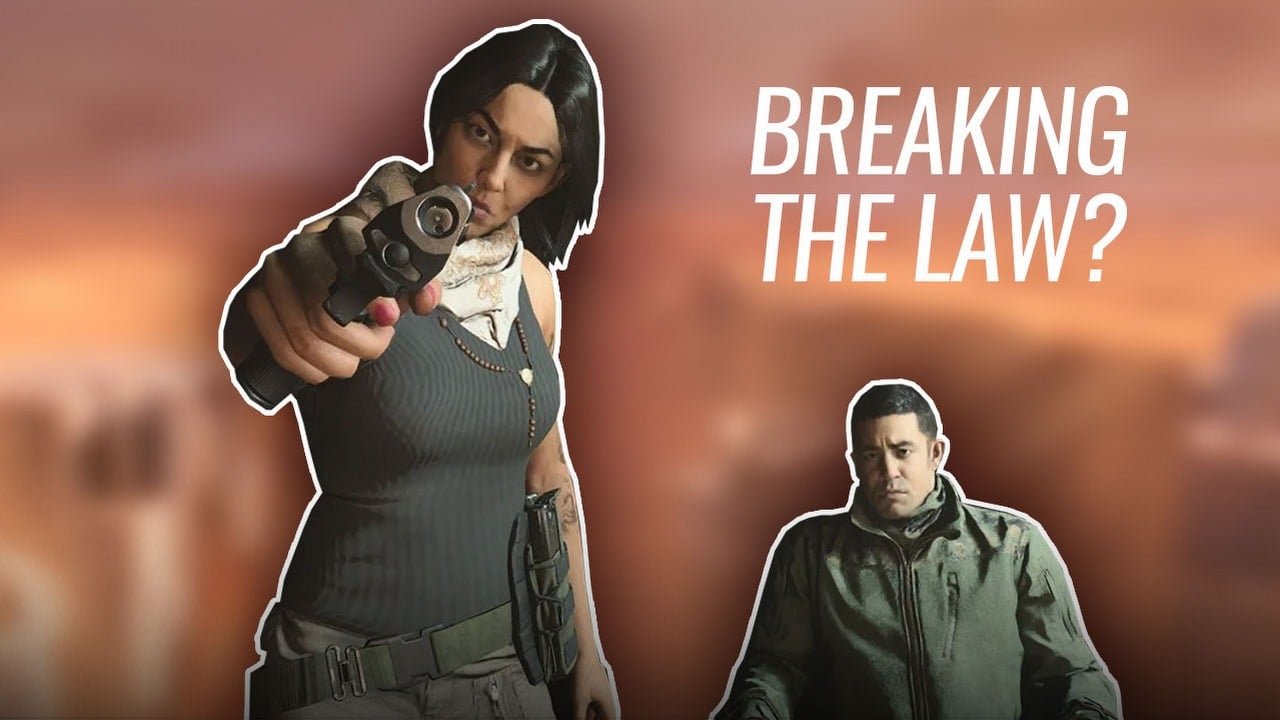
In April 2020, i.e. at a time when most countries have just introduced the first, most severe lockdown related to the outbreak of the COVID-19 pandemic, forcing the population to stay at home, an account named Can You Violate The Geneva Conventions? was created on Twitter. Screenshots of Lemmings and Mario in profile graphics immediately revealed that its founder is all about computer games and the goal is purely humorous, and if anyone had any doubts, they dispelled after reading the tweets.
The author is also associated with the satirical gaming site Hard-Drive.net, and his direct inspiration was another popular Twitter account called "Can You Pet the Dog?", listing games where you can pet animals. However, while the mechanics of being nice to a dog or cat depends solely on the creators' desire, breaking the Geneva conventions seems to be quite an obvious element in any violent war game.
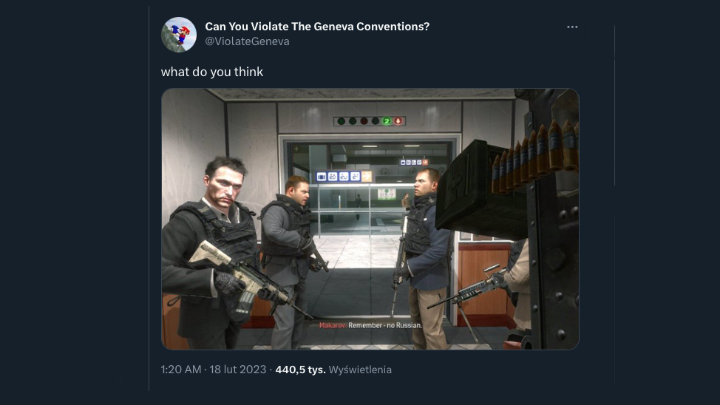
It even turned out that examples of breaking the convention can be found in the least suspicious games – of course, taking into account the satirical purpose of the experiment. But in addition to innocent jokes, the author often touched on various contemporary events from the front pages of news websites. And the most interesting conclusion is the completely opposite question: could computer games about war and violence really force the player to comply with the Geneva Conventions? To make us sensitive to the laws of war? Promote knowledge about it and stigmatize cases of its violation?
The Geneva Conventions in a nutshell
For starters, let's recall what the Geneva Conventions are about and what examples of their violations look like in popular computer games. The conventions are a series of agreements of international law, concluded over the years since the mid-nineteenth century. They directly concern the principles of conducting armed conflicts, in theory regulating the way they are conducted so as to ensure protection for potential victims and participants.
Among the many protocols and treaties, we find such grounds as: the prohibition of attacking civilians, hospitals, goods necessary for the survival of the population, the prohibition of deportation, resettlement of people from occupied territories, the order to treat prisoners of war humanely and the inviolability of sanitary personnel. The tweets also show that the author referred to the "Geneva Conventions" in quite general terms, as a whole set of laws governing armed conflicts, including numerous other treaties, which prohibit the use of chemical, biological and incendiary weapons, cluster munitions, weapons causing excessive suffering, and also sanction the protection of cultural property in time of war.

How do games relate to all this? Quite freely, of course. Since the author of the account "Can You Violate the Geneva Conventions?" seems quite the jester, they mentioned not only titles like Call of Duty, but also such brutal games as Animal Crossing.
Violate all you want
There's nothing surprising in this humorous approach. After all, games are made for entertainment, and the number of mechanics that can be included in them is pretty limited. They're tapping into our innate instincts, and they are mainly about killing enemies rather than negotiating surrender or ensuring humane transfer to a POW camp, not considering possible consequences of violating the laws of war.
The first, unobvious way in which games carelessly and repeatedly break the Geneva Conventions is marking healing items. It turns out that the symbol of the red cross on a white background is reserved exclusively for helping victims of war conflicts – using it in other cases is a violation of the law. Interestingly, the creators of Among Us recolored the red crosses to brighter ones in their game for this reason. In games Battlefield, for example, we can also shoot a medic resuscitating someone without consequences, or finish off wounded soldiers – although, truth be told, in this case, as they are lying down, they usually start aiming at us with a pistol. We also leave piles of dead bodies behind us, without taking care of handing them over to their country of origin.
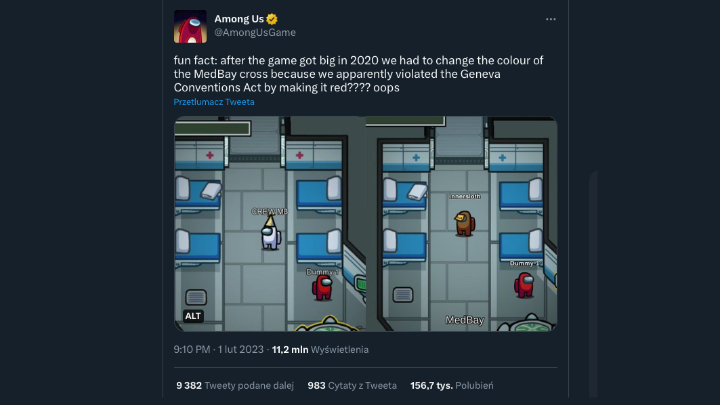
The Twitter account, however, gives more original examples of undisputed violations of the Geneva Conventions. Civilization allows plundering cities; BioShock let us "recycle" Little Sisters instead of providing them with the care due to minors; Animal Crossing: New Horizons and Pokemon Go included the option of trapping animals in small spaces; Simsom had plenty of opportunities to torture civilians and Star Wars: Squadrons allowed shooting at a medical frigate. Most shooters made it onto this list almost by default.
Among these and many other, more or less humorous examples on the profile, there are a few that are quite unambiguously referring to the laws governing armed conflicts. The most obvious cases are the player's use of white phosphorus, especially against civilians, in the shocking sequence in Spec Ops: The Line, and as a killstreak reward in Modern Warfare multiplayer. In the latter case, there also was a malicious remark stating that the player would probably not face any consequences for this, given the fact that this weapon was used by the American army during the Battle of Fallujah.
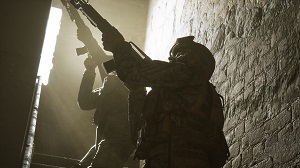
The issue of Fallujah returned in 2021 with the sensational announcement of the re-release of Six Days in Fallujah, which was withdrawn from Konami's publishing plans in 2010, amid great controversy and protests. The same fears and voices of opposition have returned, especially since in one of the interviews given by Peter Tamte – CEO of the new publisher, Victura – it was revealed that the game is going to completely omit the use of white phosphorus by the Americans and avoid asking questions about the point of the invasion of Iraq. The devs wanted to show the stories of the marines who fought there, their efforts to survive in combat, but without forcing the players to commit war crimes. According to them, it wasn't neccesary to show players the extent of human suffering the battle caused.
The Red Cross wanted a shooter with consequences
The need to make players more sensitive to the issues of war crimes is recognized by the International Committee of the Red Cross – based in Geneva. In 2013, this organization came up with a plan to create a computer game that would give a choice in these matters and, accordingly reward the players for complying with the laws of armed conflict or punish them for breaking it. According to the Red Cross, modern FPS games trivialize war too much, normalizing killing civilians, attacking medical personnel, finishing off the wounded, or executing prisoners.
A game that would have appropriately integrated reward and punishment mechanics for various acts would primarily promote knowledge of international law of war and humanitarian aid in general. What they imagined probably resembled a complex RPG – so that gameplay could be integrated with messages or information about legal implications of our actions without breaking the immersion. The players were to face the same dilemmas as soldiers on the real battlefields – where much more complicated events take place and much harder decisions are made than just whether to pull the trigger or not. And this actually somewhat coincides with subsequent announcements of the creators of Six Days in Fallujah.
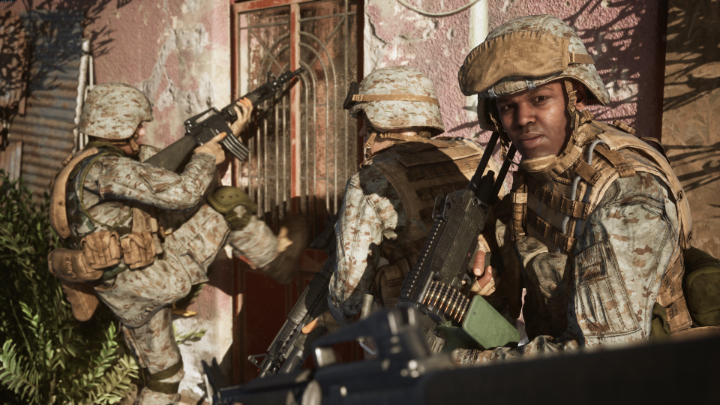
Can the player be punished?
The idea of the people from the Red Cross was praiseworthy, but it can be hard to imagine it working in practice, let alone in a mainstream game. Such a game would need to depict the vilest and most cruel human behavior. Let's not kid ourselves – if players would only get a chance, they would commit the most disgusting crimes of war without remorse. It's highly likely that they would start outdoing themselves in cruelty, probably sharing their exploits online.
In various games, it's possible to shoot bystanders, civilians, but if you do not want to give the player the opportunity to do a real massacre on the screen, the only effective punishment for such behavior is a game-over screen. Such mechanics were used, for example, by Infinity Ward in the 2019 reboot of Call of Duty: Modern Warfare. The game even let us kill a baby, but in that case, it game-overed indeed, and we had to reload. Nevertheless, it would be interesting to see what kind of gameplay mechanics the Red Cross would conjure up.
The game, of course, wouldn't have to go so far in brutal and dramatic imagery. It could portray the issue of war crimes and the observance of the law of conflict using slightly different examples. As a singular game, focused on RPG mechanics of consequences for committed actions, would certainly be a unique and noteworthy production. An attempt to incorporate such mechanics to a shooter based on a realistic conflict, however, would inevitably fail.
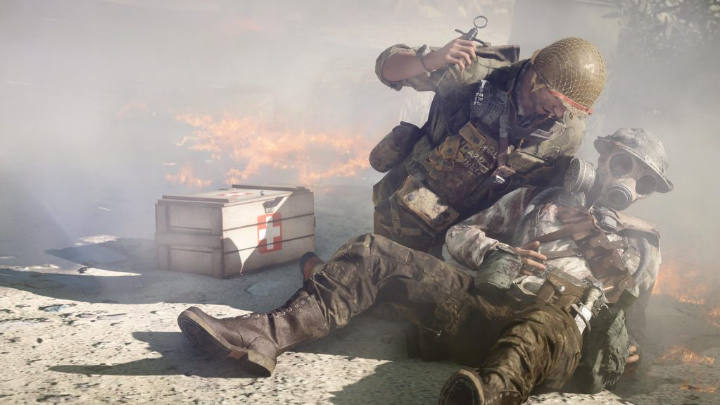
Considering the fact that we still haven't received a game endorsed by the Red Cross, it seems that it is not an easy undertaking indeed. It's also worth remembering that the idea appeared when authentic settings in FPP titles were still in fashion. In the 2000s, not a year went by without a shooter set in the Middle East, World War II or Vietnam. After the controversy related to Medal of Honor depicting the war in Afghanistan and the commercial failure of the less realistic MOH: Warfighter, the creators slowly moved away from real wars, in favor of futuristic conflicts, or those that treated history and reality more loosely. Such games didn't cause public outrage, and it was easier to introduce new mechanics into them. Only the reboot of the Modern Warfare series returned to modern armed conflicts.
Reality is worse than games
Finally, there's a rather sad conclusion that a game in which we can consciously abide by the Geneva Conventions and conduct an armed conflict in accordance with the rules of international law would, unfortunately, not be very realistic. No hot war is humane: it cannot be waged in a way imperceptible to civilians, bystanders; it's impossible to predict human behavior under the influence of prolonged stress.
Over the last year, not a week went by without new information about how inhumanely cruel Russian conduct was in Ukraine. Incessant and indiscriminate shelling of cities and critical infrastructure, executions of civilians, tortures, deportation of thousands of children and adults... All this done deliberately, with a conscious, even malicious, violation of international law agreements.
This applies not only to Russia – Syria and countries in Africa, forgotten by the Western mainstream media, face similarly gruesome fates. The USA has also done its fair share of war attrocities, although cases of violation of the Geneva Conventions were arguably more incidental than widespread. However, if you believe the words of a former member of the Navy Seals, the author of the book I Survived Afghanistan, adherence to the so-called Rules of Engagement is disciplined not so much by personal respect for the law as by fear of public misconduct by journalists in the US and a possible lawsuit broadcast on TV, which makes it completely different than in Ruzzia.
Let games be games?
Computer games with a system of virtual punishments and rewards for complying with international law are unlikely to raise a new generation, more sensitive to humanitarian issues. The marshes of pop culture in general have gone a long way in normalizing suffering and war. Arguably, this has been going on for centuries – for so long that, perhaps, violence and war are innately normalized, and we can only try to consciously change that only at this point in history. Of course, it's worth applauding and supporting more ambitious projects whose creators want to convey something more than just shooting, but changing the approach of the general public to war and violence will take much more than one, serious game.
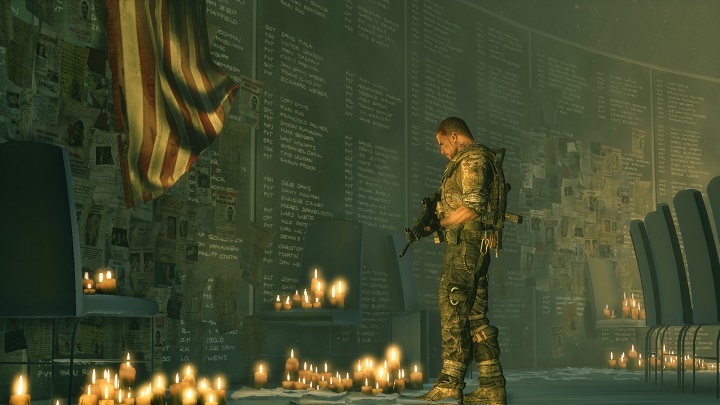
All these absurd or even far-fetched examples of alleged violations of the Geneva conventions on the Twitter account also go to show that this isn't a real problem that games are facing. In the same tone, one could also scold car games that allow breaking the highway code, even if the goal of the game is something completely different. Let games be games – a way to entertain, relax, break away from reality – rather than lectures in international law. That being said, we would actually be thrilled to play a really unique and valuable game tackling this subject.
4

Author: Darius Matusiak
Graduate of the Faculty of Social Sciences and Journalism. He started writing about games in 2013 on his blog on gameplay.pl, from where he quickly moved to the Reviews and Editorials department of Gamepressure. Sometimes he also writes about movies and technology. A gamer since the heyday of Amiga. Always a fan of races, realistic simulators and military shooters, as well as games with an engaging plot or exceptional artistic style. In his free time, he teaches how to fly in modern combat fighter simulators on his own page called Szkola Latania. A huge fan of arranging his workstation in the "minimal desk setup" style, hardware novelties and cats.
Latest News
- End of remote work and 60 hours a week. Demo of Naughty Dog's new game was born amid a crunch atmosphere
- She's the new Lara Croft, but she still lives in fear. Trauma after Perfect Dark changed the actress' approach to the industry
- „A lot has become lost in translation.” Swen Vincke suggests that the scandal surrounding Divinity is a big misunderstanding
- Stuck in development limbo for years, ARK 2 is now planned for 2028
- Few people know about it, but it's an RPG mixing Dark Souls and NieR that has received excellent reviews on Steam, and its first DLC will be released soon


